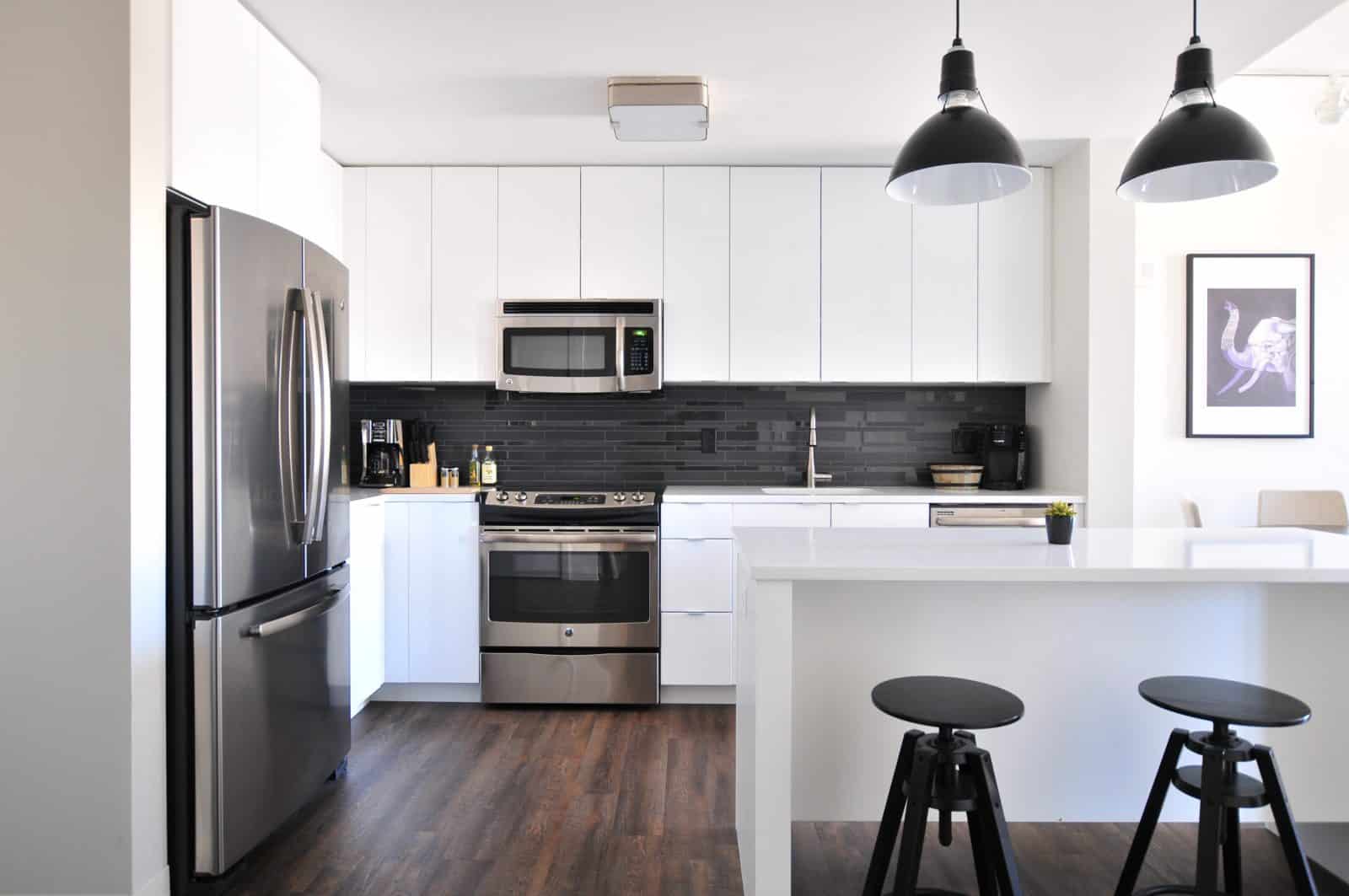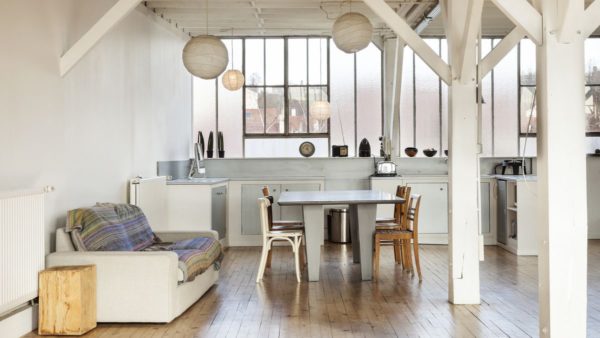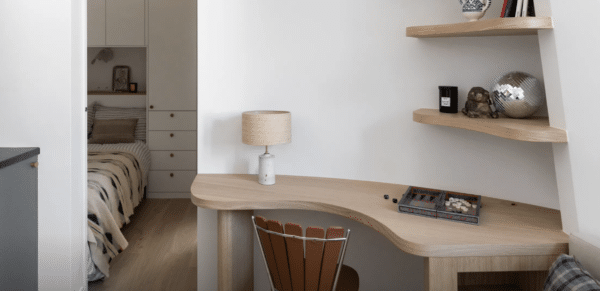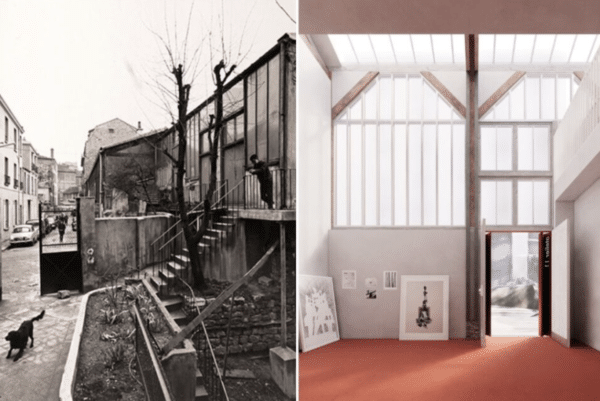Expert Insight, Breaking News, and Insider Stories on Real Estate in Paris

The ins and outs of furnished rental properties in France.
A furnished rental means the tenant is equipped with the furniture necessary for everyday life. The conditions of the rental are organized by law: duration and type of the lease, deadlines and conditions for termination, list of furniture, etc.
These terms and conditions apply to any accommodation rented furnished as the tenant’s main residence. The law stipulates how the rent must be fixed, how it can be revised each year, the maximum security deposit, what must be contained in the rental contract, etc…

The duration of the lease for furnished rented accommodation is obligatorily one year.
© Piovesempre/Gettyimages
A standard contract
To sign the rental contract, you must use a standard lease model which contains all the essential information and attach a complete notice. Its content and instructions were fixed by decree in 2015.
The most common contract is concluded for one year and is then renewed by tacit agreement. Two other types of leases can also be offered depending on the profile of your tenant:
- If they are a student, you can offer them a nine-month lease without renewal
- If they are on the move and are looking for temporary accommodation, for example for the duration of a mission or training, you can offer them the mobility lease for a period of one to ten months. As an exception, the notice is not to be provided in this case.
The minimum duration
The duration of the lease is obligatorily one year. It is then renewed by tacit agreement from year to year. However, if the tenant is a student, the owner can offer him a non-renewable nine-month lease. Finally, if the tenant is in a situation of mobility, you can offer him a lease of one to ten months, non-renewable.
Ending the lease
Whether the lease is concluded for one year, for nine months or for a period of one to ten months within the framework of the mobility lease, your tenant can leave the accommodation at any time by giving notice to you, the lessor, with a one month’s notice, without waiting for the expiry of the lease.
On the other hand, as a lessor, you can only give notice for the expiry of the lease by notifying your tenant at least three months before and giving reasons for your notice:
- To sell the accommodation (the tenant does not have priority to buy it)
- To take it back and live there (yourself or a close member of your family – this list is fixed by law)
- Or for a legitimate and serious reason
On the other hand, with the furnished student lease and the mobility lease, you do not need to give notice to your tenant. The lease ends at the term provided for in the lease, unless the tenant has left before this deadline.
What a furnished rental must contain
A dwelling is considered furnished if the tenant can move into it without having to bring furniture. All the essential elements for daily life must therefore be there. The list of furniture to be provided to your tenant is stipulated by the law. The tenant must be able to live, eat and sleep properly in the accommodation by bringing only their personal items and household linens (sheets, towels, tea towels, etc.). If the accommodation consists of several rooms, each room must be equipped with sufficient furniture. According to the official list, the accommodation must contain at least:
- Necessities for sleep: bedding including duvet or blanket, a device to hide the windows in the rooms used as bedrooms
- Necessities for eating there: hotplates, an oven or a microwave oven, a refrigerator and a freezer or, at the very least, a refrigerator equipped with a freezer compartment, the crockery necessary for taking meals, cooking utensils, a table and chairs
- For day-to-day life: storage shelves, light fixtures as well as household maintenance equipment adapted to the characteristics of the accommodation
When you sign the rental contract with your tenant, you draw up a detailed inventory of the furniture to be attached to the lease, specifying the condition of the furniture. When the tenant leaves, the same formality must be carried out. This allows for a comparison between the two. Thanks to these reports, carried out at the same time as the inventory, you and your tenant can take stock and determine if repairs or replacements of furniture are necessary and to whom they will be invoiced.
All the conditions for renting accommodation as a main residence were brought together in the law of July 6, 1989. A chapter on furnished rentals was inserted by the Alur law in 2014. The mobility lease has also been added since November 25 2018 by the Elan law.
Rental Pricing
The pricing of a furnished rental all depends on where the accommodation is located: in a “zone tendue” or not and whether it is a first rental or a relocation following the departure of a tenant.
“Zone Tendue”
When an apartment is in a “zone tendue” (a desirable urban area where the price and demand are high) the rent is fixed freely if there was no tenant previously. On the other hand, the landlord must set the rent, at most, the amount of the previous tenant’s rent if it was rented until then, unless the tenant has left more than eighteen months prior. The owner may, however, set it above this ceiling if they have undertaken major improvement work or if the rent is manifestly undervalued in relation to rent in the neighborhood provided, however, that the accommodation has an energy label between A and E. On the other hand, the rent remains limited to that of the previous tenant if the accommodation has an energy class F or G. This applies to all leases signed since August 24, 2022.
The “zone tendue” also requires capping the rent per square meter according to the other rental prices in the area. In this case, the rent is fixed within the limit of a double ceiling and must not exceed:
- The rent of the previous tenant
- The increased reference rent, fixed per square meter, depending on the type of rental (unfurnished or furnished), the number of rooms in the accommodation, the period of construction of the building and the neighborhood in which it is located
Since the Elan law on November 25, 2018, in fact, some cities in the zone tendue may decide to cap the rent on all or part of their territory at increased reference rents. This is what major cities such as:
- In Paris for rental contracts signed since July 1, 2019
- In Lille for those signed since March 1, 2020
- In the nine communes of Plaine Commune (Aubervilliers, Épinay-sur-Seine, Pierrefitte-sur-Seine, Saint-Denis, Villetaneuse, Stains, Île-Saint-Denis, Courneuve and Saint-Ouen) for leases signed since June 1, 2021
- In Lyon and Villeurbanne for leases signed since November 1, 2021
- The nine towns of the Est Ensemble public territorial establishment (Bagnolet, Bobigny, Bondy, Le Pré-Saint-Gervais, Les Lilas, Montreuil, Noisy-le-Sec, Pantin and Romainville) for rental contracts signed since December 1 2021
- In Montpellier for leases signed since July 1, 2022
- In Bordeaux for leases signed since July 15, 2022
All dwellings located outside the zone tendue
For those outside of a zone tendue the rent can be set freely on the arrival of any new tenant, provided there is an energy label between A and E. On the other hand, if the accommodation has an energy label F or G, the rent of the newcomer is capped to that of the previous tenant.
Charges can be fixed or actual. It is up to the lessor to decide this when signing the lease and to specify it in the rental contract. Only exception, if you sign a mobility lease: the charges are necessarily fixed at the flat rate.
The security deposit is capped at two months’ rent excluding charges and payable by the owner. Many tenants think that it is capped at one month, because they are confusing it with an empty rental for which, in fact, the security deposit represents a maximum of one month’s rent excluding charges.
On the other hand, if you sign a bail mobilité (mobility lease), you cannot ask for a security deposit. However, the Visale guarantee (a rental deposit service acting as a guarantor) that you can use to guarantee the payment of rent also covers you for rental repairs, which compensates for the absence of a security deposit.
Taxation: declaration of furnished rentals
Income from furnished rentals must be declared as Bic, industrial and commercial profits. Furnished lessors are divided into professional furnished lessors and non-professional furnished lessors (LMP and LMNP).
To declare income from non-professional furnished rentals, you would file under the LMNP status (non-professional furnished rental company). It offers landlords the possibility of choosing between two tax regimes:
- Micro-Bic scheme for income from rentals of less than 72,600€ or 176,200€ for furnished tourist accommodation or guest rooms. No charge is deducted, but the landlord benefits from a fixed abatement of 50% or 71% for tourist accommodation. Income from rental is considered industrial and commercial profit and as such the income must be reported on Form 2042 C PRO. Gross revenue should be reported on lines 5NO to 5PO or 5NP to 5PP depending on the nature of the activity. It is the tax administration that applies the allowance itself.
- For the actual regime that applies for income above 72,600€ it is more complex, as it requires keeping accounts. But it also makes it possible to deduct the expenses inherent to housing and rental from the amount of income to be declared and can therefore considerably reduce the amount of taxes, or even lead to a property deficit. To declare income, you must have form 2031 and Cerfa 11085 accompanied by annexes 2033.
Advantages of renting a furnished apartment
Renting your furnished accommodation allows you to combine several advantages, starting with a tax advantage. If you opt for the LMNP status (non-professional furnished rental company), you can choose to declare your income by opting for the micro-Bic regime which is simple and allows you to benefit from a flat-rate allowance of 50 or 71% on income from the rental to be declared. Or you can opt for the real regime which allows you to deduct from your property income all the charges inherent in housing and rental. This scheme allows you to generate a land deficit over several decades.
In addition, the rent applied to furnished accommodation is 10 – 30% higher compared to empty rented accommodation, especially in the zone tendue.
Finally, the rental lease is more flexible, because it is signed for only one year, and this duration can be reduced to nine months when the tenant is a student. This gives you greater flexibility for the revision of the rent or the carrying out of work between two rentals. In addition, the security deposit can represent two months’ rent, compared to one month with an empty dwelling. As a lessor, the notice to give to a tenant will be three months, compared to six months with an empty dwelling.
Original Article Updated by Marthe Gallois on October 28, 2022 on PAP.fr
Contact Paris Property Group to learn more about buying or selling property in Paris.













